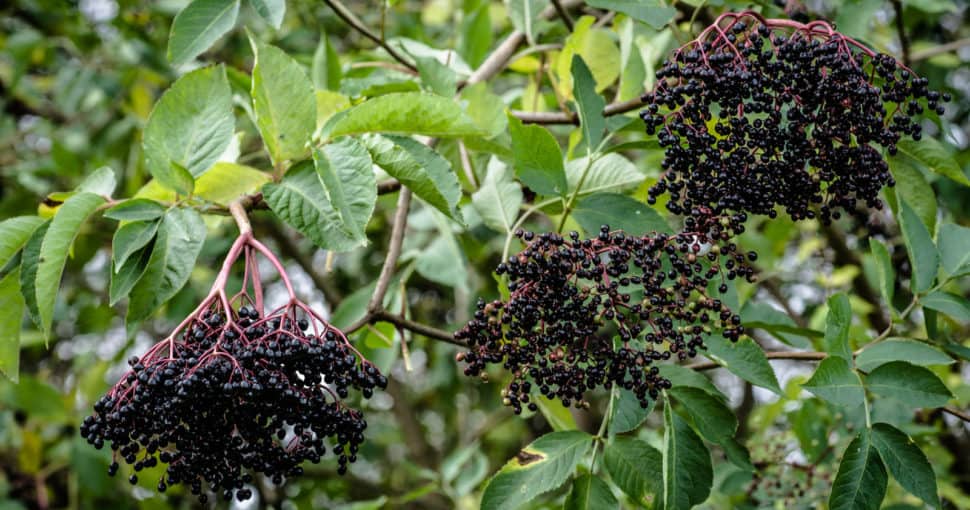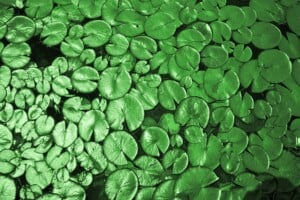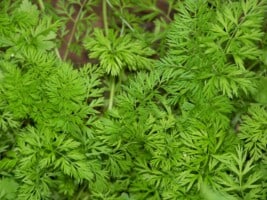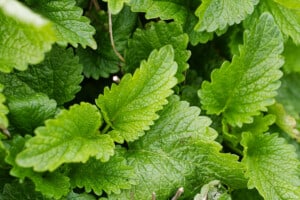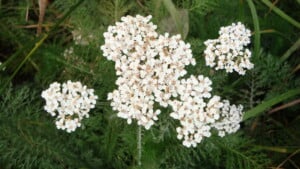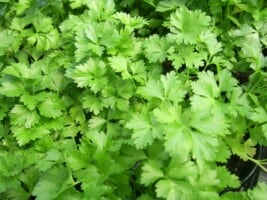It is essential to know what berries are edible and which ones are poisonous. This is especially true if you have children that might be tempted to eat berries they find in the garden. Elderberries are a tricky plant. Some people say they are poisonous, and others say the fruit is delicious, but what is the truth?
Contents
Elderberries contain lectins and cyanogenic glycosides, which are poisonous to people, cats, dogs, cows, and sheep. The poisons can be deactivated by cooking the berries or flowers for at least forty-five minutes. Elderberries contain vitamin C and antioxidative and anti-inflammatory properties.
It is critical to have a sound knowledge of the toxicity levels of plants in your garden. Elderberries grow naturally in many areas. You should know the facts about them before being tempted into picking and eating them while out on a walk or picnic.
What Poisons Are Found In Elderberries?
There are two poisons found in elderberries. Lectins are found in unripe berries, seeds, and tree bark. They cause gastrointestinal upset if large quantities are eaten. Symptoms such as severe cramps, diarrhea, and vomiting will be seen.
Lectin poisoning is not usually fatal but can be a source of dehydration which can quickly become fatal, especially in small children.
The second poison that is found in elderberries is cyanogenic glycosides. It is located in the roots, bark, leaves, and berries. Under certain conditions, cyanogenic glycosides produce cyanide which is a deadly poison that causes the following symptoms:
- severe stomach cramps
- diarrhea
- vomiting
- dizziness
- blinding headaches
- rapid heart rate
- rapid breathing rate
- weakness
- anxiety and restlessness
Fortunately, the cyanide occurs in minute quantities. It would take ingestion of many berries to cause fatal poisoning in an adult person.
Every 100 grams of elderberries contains 3 milligrams of cyanide. Every 100 grams of elderberry leaves have 3 to 17 mg of cyanide. A person would need to eat 3.3kg of berries or 600 grams of leaves to ingest an amount toxic enough to kill a 130 pound (60 kg) individual.
Small children who often eat berries from the garden will need to eat much less of the berries or plant matter to ingest fatal quantities.
Even in small quantities, cyanide can produce unpleasant gastrointestinal symptoms and make the individual feel unwell. Cyanide builds up in the body as it is not quickly eliminated. As a result, eating small quantities of berries over an extended period can accumulate to lethal amounts.
It must be noted that a wilted or regrowing elderberry plant contains higher levels of poison.
If Elderberries Are Poisonous, How Can People Eat Them?
Elderberries must be cooked before being consumed. Elderberries should be added to water and heated to boiling point. Turn the heat low to allow the berries to simmer for at least 45 minutes.
This process deactivates the lectins and the cyanogenic glycosides and prevents poisoning. Elderberries have beed used to make wine, cordials, syrup, jam and can be used as a flavoring in cooking.
What Are The Benefits Of Elderberries?
Elderberries have been utilized for hundreds of years in herbal medicines. They have several beneficial properties.
- Elderberries are a bountiful source of vitamin C. One cup of elderberries contains 52mg of vitamin C.
- Elderberries contain phenolic acids, potent antioxidants that prevent damage from free radicals in the body.
- Anthocyanins cause the dark color of elderberries and are excellent anti-inflammatories with antioxidant properties.
- Elderberries contain the antioxidant flavanols, quercetin, isorhamnetin and kaempferol. Elderberry flowers have ten times the amount of flavanols as the berries. The flowers can be used to make teas, tinctures, syrup, and eyewash.
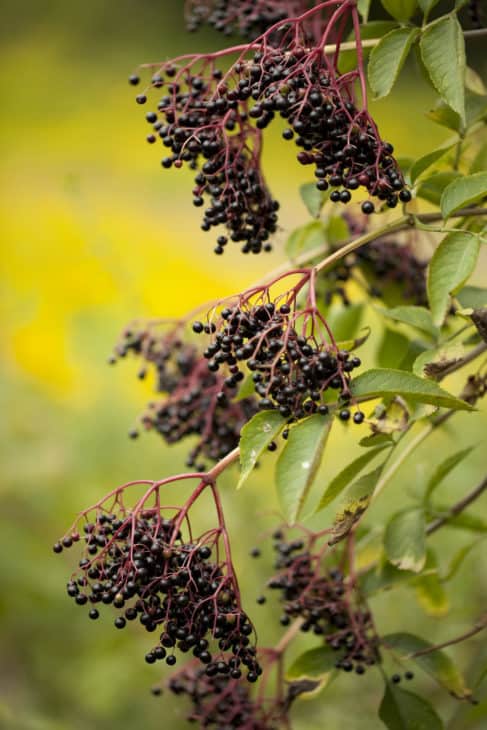
What Disorders Are Treated By Elderberries?
Elderberries have been used for centuries by healers to treat allergies, colds, and flu. They are combined with other herbs to combat fevers and pain. Elderberries are also a natural diuretic and laxative.
They are considered useful in anti-inflammatory conditions, ranging from injuries to metabolic disorders such as diabetes. There is some evidence to suggest elderberries may help treat depression. Elderberries may reduce cholesterol and uric acid while assisting with the repair of cells damaged by oxidative stress.
Doctors advise against giving elderberry to children under the age of 5 years and pregnant women. There is no conclusive evidence that using elderberries in these two population groups is safe.
Is Elderberry Toxic For Animals?
Elderberries are toxic to dogs and cats. They show similar symptoms to people that eat the raw fruit of parts of the plant. In addition, dogs and cats may show:
- Excessive salivation or drooling
- Aggression
- Tremors
- Organ failure
Dogs and cats have a body mass much less than an adult human and, as a result, would experience severe side effects from smaller quantities of the elderberry plant.
Horses do not often eat elderberries and seem to have minimal side effects. Goats eat elderberries and also do not show symptoms of poisoning.
Elderberries are toxic to cattle and sheep. The cyanogenic glycosides are hydrolyzed in the animal’s rumen releasing hydrogen cyanide. This prevents the hemoglobin in the blood from releasing oxygen to the tissues.
The animal experiences anoxia, where the cells and tissue die from lack of oxygen, rapidly leading to death. In affected animals, the venous blood is a bright cherry red due to the oxygen that is retained by the hemoglobin.
Animals become panicked, agitated, breathe rapidly and have a rapid heart rate as their bodies fight frantically for oxygen.
Wild birds eat elderberries with no apparent ill effects. They are, however, toxic to parrots and other cage birds. No part of the elderberry plant or fruit should be offered to cage birds.
Conclusion
Elderberries are a confusing plant as they contain two poisons that cause unpleasant and sometimes fatal results if ingested. On the other hand, elderberries have been used for centuries as herbal medicines to treat a variety of ailments.
Modern research indicates that elderberries may be beneficial in treating many different conditions. The critical factor is that the fruit and flowers must be cooked before being used in any form.

